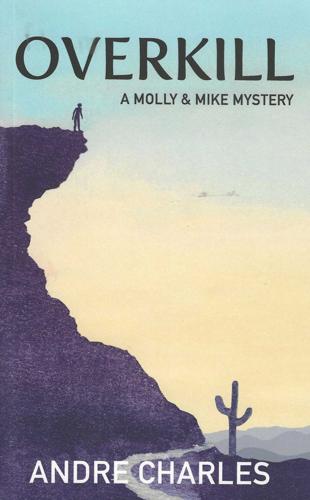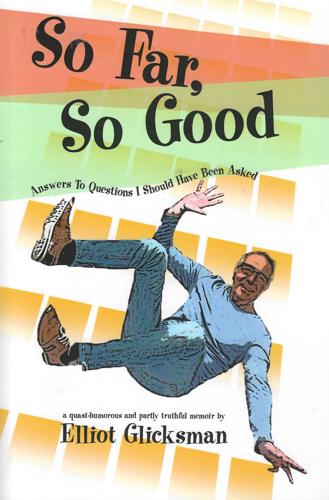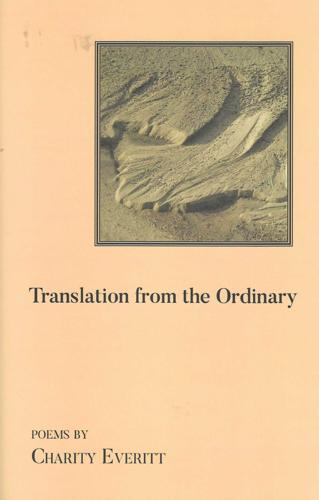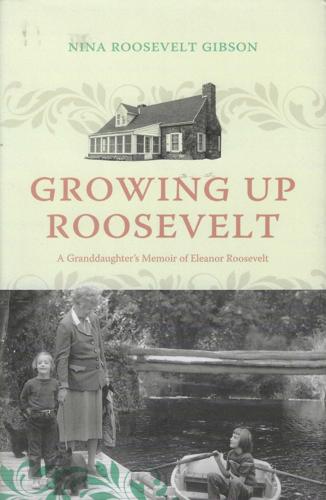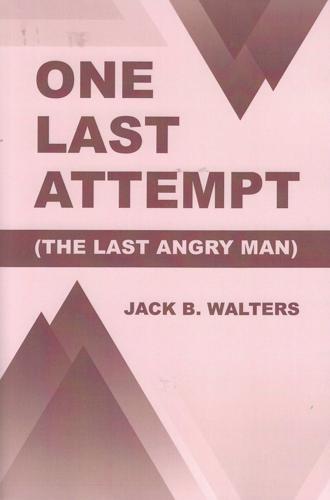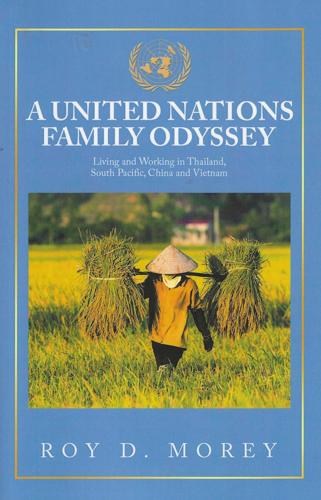“Overkill” by Andre Charles. Konstellation. 322 pages. $14.99 paperback; $8.99 Kindle.
Oro Valley residents Dorothy Leonard and Walter Swap are back as “Andre Charles,” their pseudonym for the author of the Molly and Mike mysteries. The second in the series, “Overkill” is again set in fictional Tucson-area retirement community Sunrise Acres, with its abundant social interaction, fierce pickleball and gossip.
It opens with Mike shepherding a crotchety former judge up a mountain trail. It’s a group hike, but they’ve fallen behind as the judge is acting bizarrely — red-faced, mumbling and gesticulating. Suddenly, he flings his backpack off a ledge and seems ready to follow it. Mike grabs at him but can’t keep him from plunging to his death. After the judge’s house is burgled and his estranged wife, driving his expensive electric vehicle, loses power on the highway and crashes, mysteries pile up. The police begin investigating, but amateur sleuths Molly and Mike are on point, and they start their own digging … much to the irritation of irascible Detective Rasmussen, who wants to charge Mike with the judge’s murder.
With a good line-up of suspects — the resentful wife, young mistress, dinner-party guest who shared stink-eye with the judge, a young computer whiz — Andre Charles keeps the reader guessing, and you want Mike’s name cleared for the next in the series.
— Christine Wald-Hopkins
“So Far, So Good: Answers to Questions I Should Have Been Asked” by Elliot Glicksman. A3D Impressions. 168 pages. $19.80. Also available on Kindle.
Sometimes you’ve got to let the big guns speak. When a book’s blurbed by iconic doodler, scribbler and comic David Fitzsimmons and iconic writer, columnist and editor Tom Beal, you step aside:
So, David Fitzsimmons on Elliot Glicksman’s “So Far, So Good:” “His book is such a delightful, charming, clever, breezy memoir of his rich, full and accomplished life I had to put it down. What does a professional published writer like myself do when you find your ‘best friend’ is a superior author, the better writer? As well as being multitalented? He plays the ukulele, for God’s sake. And this is just this schmuck’s first book.”
And, Tom Beal: “Don’t take my words for it. Read his. There are only 51,735 of them. He counted. You’ll find out why Elliot’s family and friends tolerate his humor, even when it’s at their expense. There is a nice guy behind the jokes….”
Who needs a reviewer when you’ve got friends who can nail your book, and roast you, too?
Retired Tucson attorney and standup comic Glicksman serves up a number of plates in this “quasi-humorous and partly truthful memoir:” straight-up comedy, life story, celebration of family, professional history. Each chapter title is in the form of a question posed to him, (“Are You Bothered by Any Bedding, Holidays, or Amendments to the Constitution?,” for example, on which he riffs. In this case, it’s the plagues of towering bed pillows, National Potato Chip Day, and the Second Amendment.
Glicksman is very funny. His first few chapters read like Borscht Belt gigs (at which he’s adept — as duo and solo acts, and having opened for Jerry Seinfeld, Gilbert Gottfried and Phyllis Diller.) In the chapters about his class-clown childhood in Wisconsin and buzzed 70s college years, he’s candid and self-deprecating; about his family, he’s warmly humorous. About his law career, he’s more serious. One exception though: After Glicksman once broke up a law school class, his professor sternly admonished him: “Mr. Glicksman, a law school class or courtroom is not the place for jokes. Do you understand?” Dead silence. One beat … two beats … and then, Glicksman, “But, professor, what if it’s really funny?”
He was elected 1979 University of Arizona Law School graduation speaker.
Another big gun… speaking for himself. Get the book for more gags.
— Christine Wald-Hopkins
“Translation from the Ordinary” Poems by Charity Everitt. Finishing Line Press. 30 pages. $17.99.
Tucson poet Charity Everitt drew from two distinctly differing translations of Psalm 37:3b for the 22 poems in this image-rich debut chapbook: “Inhabit the land and practice faithfulness” and “Dwell in the land and feed on His faithfulness.” Concerned with ambiguities regarding truths both personal and universal — loss, love, aging, grief, rebirth — the poems reflect the translations’ subtle differences. From the “Inhabit” and “practice faithfulness” section are poems on inherited traits, solace in a bus ride, grief (“Grief is for the living/ to wear like a blanket/ you may pick at the edges but the weave is meant to last….”
The “Dwell” and “feed on His faithfulness” section includes poems on sympathy for the broken, celebrating the Day of the Dead, the restorative power of words (“It is good to want/ to open a book again, taste words/ that smell of rain, that melt/ the shadows/ into folding their tents and giving up….” Everitt’s images are vivid and unexpected; her voice transcendent.
— Christine Wald-Hopkins
“Goodbye Big City, Hello Big Island” by Diann Wilson. Illustrations by Helen White. Stone Compass Press. 229 pages. $15.99; Kindle $9.99.
At the start of their Hawaiian vacation, Diann Wilson tripped and fell on her husband, breaking his rib and ruining their plans to play plenty of golf. They needed an alternate activity, so they bought a house.
More than a house, really. It was a nut farm, which somehow seems appropriate. But, in addition to being impetuous, Wilson and her husband Steve were dab hands at refurbishing old houses. This one had gone 60 years without an update, so the challenge delighted them. Bidding their Los Angeles friends a fond farewell, they took up farming in Hawaii, an enterprise that provided them plenty of pleasure and presented more than a few challenges, all of which Wilson details in this sparkling account of learning to live aloha.
The author is a gifted storyteller, laid-back and funny with a penchant for witty observations. Her easy, frothy style feels a little like reading letters from a friend (a somewhat impulsive friend with a good sense of humor) and it’s easy to feel invested in her undertaking while being completely entertained.
The author, who recently moved to Tucson, is the past-president of the Hawaii Writers Guild, hosts the YouTube show, “Write On!,” and has been published in many newspapers and literary journals.
— Helene Woodhams
“Growing Up Roosevelt: A Granddaughter’s Memoir of Eleanor Roosevelt” by Nina Roosevelt Gibson. Excelsior Editions. 190 pages. $26.49, Kindle $25.17.
It’s not uncommon to have loving memories of time spent with a special grandmother — but in this case, the author’s grandmother was Eleanor Roosevelt, and her memories are enthralling. In this book, Nina Roosevelt Gibson recalls the dozen years during her childhood and adolescence that she spent with one of America’s most remarkable women, known to her simply as Grandmère.
Gibson was 7 years old in 1950 when her family moved to Hyde Park, New York, from California where her father, John Roosevelt (Eleanor and Franklin’s youngest son) was stationed during the war. It was an upheaval for a little girl accustomed to ocean breezes and palm trees, made more daunting by an arduous, cross-country plane trip. Arriving disheveled and unpleasantly redolent of air-sickness, she worried about her grandmother’s reaction. She needn’t have. She was drawn into Eleanor’s warm and comforting embrace, and so began a devoted relationship.
Gibson’s vivid storytelling, rich in personal and historical details, recounts the lively times at Val-Kill, Eleanor’s haven and the scene of frequent gatherings of family and guests ranging from old friends to world leaders. But the highlight of the book is her account of a memorable trip abroad with Grandmère, during which Gibson acquired a camel in spite of herself, and the pair enjoyed an intimate tea with the Queen of England.
Filled with family photos, Gibson’s evocative book is simultaneously a charming coming-of-age story and a moving tribute to the grandmother whose example continues to guide her. Now a resident of Vail, Gibson is a retired psychologist and a member of the Southern Arizona Children’s Advocacy Center.
— Helene Woodhams
“One Last Attempt: (The Last Angry Man)” by Jack B. Walters. Trafford Publishing. 522 pages. $39.99 hardcover, $28.99 paperback, $2.99 Kindle.
Jack Walters shares his views on politics, the economy and public affairs in this collection of history book reviews and commentary. The country is headed in the wrong direction, opines the author, ever further from Ronald Reagan’s ideal of the “shining city on the hill;” Walters has spent 20 years “trying to make sense of it.” His decidedly right-leaning outlook seems unlikely to meet with universal acceptance despite the urgency of his call to action. Walters, an outdoor enthusiast, retired to Tucson two decades ago. He has authored five books, including this one.
— Helene Woodhams
“A United Nations Family Odyssey: Living and Working in Thailand, South Pacific, China and Vietnam” by Roy D. Morey. iUniverse. 270 pages. $18.99; Kindle $3.99.
With family in tow, Roy Morey arrived in Bangkok to take up his duties as a United Nations Development senior officer in August 1978. The next 17 years would be a rewarding time of exploration for the Moreys, as the author chronicles in this collection of vignettes from their sojourns in Thailand, China, Vietnam and the South Pacific.
Morey’s deep knowledge of the history, culture and politics of these countries helps illuminate the family’s shared experience as Americans abroad. His vivid recollections, from the Ice Festival in Harbin, China, to an overland trek through Vietnam War battle sites, to adapting to the rhythm of life in Samoa, illustrate how they learned to delight in the unfamiliar and develop a sophisticated worldview.
But adventuring abroad is only half the story. The first portion of the book traces the author’s career path, which wound through Congress (where he was an American Political Science Association Fellow), the Political Science Department at Denison University, and the Nixon White House, prior to a stint as a deputy assistant secretary of state. His account of his time in Washington in the ’60s and early ’70s inform his assessment of the current political situation with which he ends this informative memoir.
Now retired, Roy Morey lives in Tucson.
— Helene Woodhams


